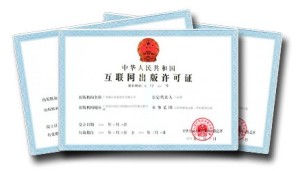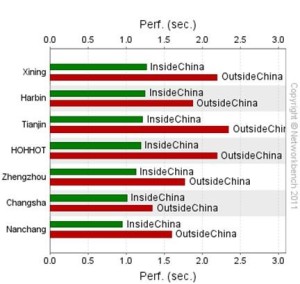Ecommerce Success in China: 5 Challenges to Overcome

Headlined by Alibaba’s major US IPO, China’s ecommerce market has been thrust into the limelight, transforming it into a top priority for global expansion among Fortune 2000 companies.
Ecommerce companies must understand the technical and regulatory challenges required to overcome in order to succeed.
A recent Fleishman Hillard report on China’s state of ecommerce presents this massive and rapidly growing Internet user base as a major source of growth and revenue opportunities:
- By 2015: $540 billion projected Chinese online transactions
- By 2020: China’s ecommerce market projected to exceed the US, Germany, France, and Great Britain combined
- Past 3 years: Chinese digital purchases have skyrocketed, doubling annually
Ecommerce companies must have the appropriate knowledge to capitalize on China’s ecommerce potential. Complex licensing requirements, the Great Firewall (government Internet censorship), and a non-standard Internet infrastructure can stand in the way for many.
To effectively reach Chinese consumers online, global ecommerce companies need to know what lies ahead:
1. Licensing Requirements
Several licensing requirements must be satisfied to host and deliver web content within Mainland China. Different license requirements may apply depending on the type of website or application. Here are some of the most common:
- ICP – Internet Content Provider License
- Beian: ICP – commonly known as just the “Beian”
- Industry specific licenses (e.g. media, ecommerce, gaming etc.)
The ICP Beian and the PSB Beian are required for all websites in China. The ICP License is mandatory for all websites with a shopping cart.
Non-Chinese companies can get these licenses by working through a local registration agent. All licenses are managed and issued by the Ministry of Industry and Information Technology (MIIT), a government agency appointed to regulate and develop the country’s Internet and wireless industry policies.
2. Great Firewall and Censorship
The Great Firewall, formally known as the Golden Shield Project, is a countrywide Internet censorship and surveillance program operated by the Chinese Ministry of Public Security (MPS).
It was designed and implemented to filter content that is “harmful” (e.g. gambling site, pornography, violence-related content etc.) to the general public.
All websites accessed within Mainland China are monitored by the MPS and are subject to being blocked if they violate regulations. Major websites such as YouTube, Facebook, The New York Times and many others have been blocked due to content deemed inappropriate.
The Great Firewall uses four different methods to filter out objectionable content, including:
- DNS Blocking
- Connection Phasing
- URL Keyword Blocking
- Page Content Scanning
Clearly understanding the Great Firewall and current content policies is essential for keeping your site accessible. The Great Firewall filters websites hosted outside the firewall, which can increase loading time by 50%.
3. Web Latency
Latency is the time it takes for a user to request data and then receive it. Latency is often discussed in terms of distance because the farther data travels, the longer it will take to load for the user.
For example, an ecommerce site for Chinese users will likely take longer to load if it is hosted in the United States as opposed to Japan.
Distance-induced latency is a top priority for many ecommerce sites attempting to reach China’s online population. Hosting web content closer to China will naturally reduce latency, but distance may not be the only factor.
In a recent web performance test, delivering content from Hong Kong to Shanghai vs. San Jose to Shanghai only cut load times by 50% despite an 88% reduction in physical distance. To get the best performance, ecommerce companies should host and deliver content from within China’s Great Firewall itself.
4. Limited Peering Between Local ISPs
China’s Internet infrastructure is difficult for website data to navigate. There are limited peering points, or transition points, for data to traverse each network that makes up the Internet.
Major ISPs, or Internet service providers, have difficulty sending website data from one another because China’s networks create non-standard peering.
These weak peering points present several web performance challenges that can impact load speed and availability of your ecommerce site. Without strong and reliable connections between networks, data must route itself through multiple connection points like a ping pong ball to get to its specific destination within China.
If it were your ecommerce website in this situation, your customers may be unable to browse your site reliably, complete their transactions, or even access your site during peak times. Users in more rural areas of Mainland China, who make up about 28% of the country’s Internet population, experience the most difficulties.
5. Mobile Optimization
Providing an ecommerce web experience optimized for mobile is an opportunity to maximize engagement and revenue in China. China has over one billion mobile subscribers and 60% of them make purchases with smartphones.
With the rise of in-app purchases and mobile payment options, mobile purchases are expected to grow substantially in the next few years.
According to the China Internet Network Information Center (CNNIC), over 83% browse the web with smartphones, and most reside in rural parts of Mainland China. Limited access to physical retailers outside major cities means the majority of foreign and brand name luxury goods can only be purchased online.
Final Thoughts
China offers a massive, rapidly growing, and web savvy ecommerce consumer base. But local regulatory requirements regulating content variation, monitoring and localization present challenges for aspiring ecommerce companies in China.
Ecommerce companies must also consider the technical complexities of providing end users an optimal online shopping experience. If global ecommerce companies can overcome the technical and regulatory challenges in their way, they may effectively reach users in Mainland China and realize maximum growth and revenue opportunities from this hot market.












